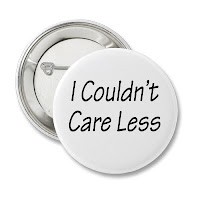another ethical conundrum: how can I tell if you are telling the truth??
What if somehow I find out my favourite mommy blogger has no children. She writes about Heather and David in all sorts of scrapes and escapes. And then, I find out that no such kids (issue of pseudonyms aside) exist.
BUT, you might say, if that were the case–if a mommy blogger were "posing" as a mommy–you’d just never find out.[ I might use the term "lying" here, but I think it’s too strong? There may be echoes of the James Frey debacle at work – where he claimed to be an addict and criminal, but turned out to be mostly a writer! One of the features of cyberspace is that we are not likely to get the opportunity to match pixels to pictures. Liars can just go on lying, unless...
When I read a blog about momming, I often wonder who the writer is–what does she like, look like, where does she live? I recently read a scholarly discussion about how the internet and virtual reality really promote this sort of thinking and wondering. All you know about me are these letters on a screen. In this way I am not real or material, but a "mediated" presence. If I say I have a copy of the phone book on my desk, you can’t know if this is true.
If I wrote a letter to you, at least the pen marks and paper would have touched my body. There would be some element or trace of me as a person/body in/on that letter. But when we write in cyberspace there’s a gap and impersonality.
As I read your mommy blog, I probably do so hoping it may tell me something about life as a parent. I am not looking for a simulation but a representation that corresponds with life. I can only judge the usefulness of your words by imagining them in the context of my lived reality. But I’ll never know if what you say is really based on actual experience. There is an unbridgeable gap. As Barry Brummet says of writing about life on-line, it is nothing more than "pixels on a screen." This leads to his intriguing question: "How do signs that claim to represent, but can never be coupled with the realities they represent, pull themselves up by their own semiotic bootstraps to show their fidelity? How do we guarantee accurate representation when representation is all there is?" (Rhetoric in Popular Culture, 274-75).
Have you read a blog that makes you think the writer is exaggerating or posing? What helps you to know this? This is another angle on our ethical question. Our usual focus is on talking fairly about others. Here I am asking what happens if I just make it up– talking about imaginary others, as if they were real. Is that breaking an ethical"rule" (of blogging genre)?
Do we expect mommy bloggers to tell about real experience? Should we have this expectation?
I cannot go to your houise , represents realitya
BUT, you might say, if that were the case–if a mommy blogger were "posing" as a mommy–you’d just never find out.[ I might use the term "lying" here, but I think it’s too strong? There may be echoes of the James Frey debacle at work – where he claimed to be an addict and criminal, but turned out to be mostly a writer! One of the features of cyberspace is that we are not likely to get the opportunity to match pixels to pictures. Liars can just go on lying, unless...
When I read a blog about momming, I often wonder who the writer is–what does she like, look like, where does she live? I recently read a scholarly discussion about how the internet and virtual reality really promote this sort of thinking and wondering. All you know about me are these letters on a screen. In this way I am not real or material, but a "mediated" presence. If I say I have a copy of the phone book on my desk, you can’t know if this is true.
If I wrote a letter to you, at least the pen marks and paper would have touched my body. There would be some element or trace of me as a person/body in/on that letter. But when we write in cyberspace there’s a gap and impersonality.
As I read your mommy blog, I probably do so hoping it may tell me something about life as a parent. I am not looking for a simulation but a representation that corresponds with life. I can only judge the usefulness of your words by imagining them in the context of my lived reality. But I’ll never know if what you say is really based on actual experience. There is an unbridgeable gap. As Barry Brummet says of writing about life on-line, it is nothing more than "pixels on a screen." This leads to his intriguing question: "How do signs that claim to represent, but can never be coupled with the realities they represent, pull themselves up by their own semiotic bootstraps to show their fidelity? How do we guarantee accurate representation when representation is all there is?" (Rhetoric in Popular Culture, 274-75).
Have you read a blog that makes you think the writer is exaggerating or posing? What helps you to know this? This is another angle on our ethical question. Our usual focus is on talking fairly about others. Here I am asking what happens if I just make it up– talking about imaginary others, as if they were real. Is that breaking an ethical"rule" (of blogging genre)?
Do we expect mommy bloggers to tell about real experience? Should we have this expectation?
I cannot go to your houise , represents realitya



Comments
Post a Comment